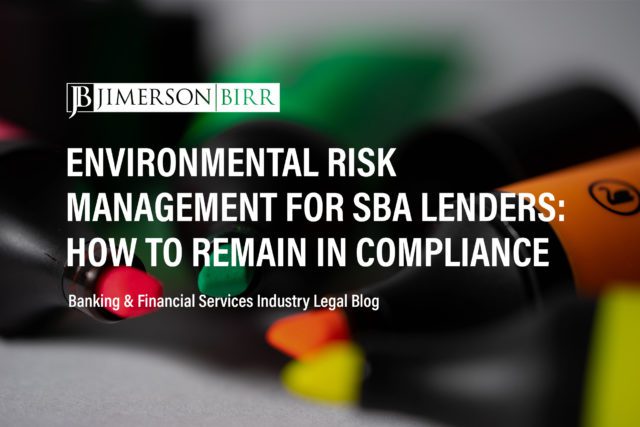What does developing cost-effective mitigation strategies for environmental impacts entail?
Developing cost-effective mitigation strategies involves identifying and implementing measures that reduce adverse environmental impacts while maximizing the chances for permit approvals in the context of environmental law. In Florida, these strategies focus on integrating legal and technical expertise to address complex ecological issues, navigate regulatory requirements, and facilitate project development.
One example of cost-effective mitigation is wetland banking, which involves creating, restoring, or enhancing wetlands to compensate for authorized impacts on aquatic resources. Under the Clean Water Act (CWA) and Florida’s Environmental Resource Permit (ERP) Program, wetland banking offers a streamlined permitting process and ensures ecological benefits to offset unavoidable impacts.
Another example is using conservation easements to protect natural resources while allowing limited development. Under the Florida Conservation and Recreation Lands (CARL) Program and federal tax incentives, conservation easements provide landowners with financial benefits and long-term protection of valuable ecosystems.
Need help developing cost-effective mitigation strategies for environmental impacts? Schedule your consultation today with a top environmental law attorney.
Which laws and regulations apply to developing cost-effective mitigation strategies for environmental impacts in Florida?
Several Florida and federal laws and regulations apply to environmental permitting. For wetlands and land disturbances, Florida’s Environmental Resource Permitting (ERP) program is governed by Florida Statutes Chapter 373 and Florida Administrative Code (F.A.C.) Chapter 62-330. The U.S. Army Corps of Engineers administers Section 404 permits under the Clean Water Act at the federal level.
Hazardous waste management is regulated under Florida’s Hazardous Waste Management Program, established by F.A.C. Chapter 62-730 and the federal Resource Conservation and Recovery Act (RCRA). In addition, stormwater management is addressed by the National Pollutant Discharge Elimination System (NPDES) permitting program, regulated by the FDEP and the Environmental Protection Agency (EPA).
Air quality permitting in Florida is governed by F.A.C. Chapter 62-210, while the federal Clean Air Act (CAA) sets national air quality standards. In addition, the Endangered Species Act (ESA) protects listed species and their habitats, with permitting requirements administered by the U.S. Fish and Wildlife Service and the National Marine Fisheries Service.
Finally, brownfield site redevelopment is regulated under the Florida Brownfields Redevelopment Program, established by Florida Statutes Chapter 376 and F.A.C. Chapter 62-785.
What are the strategic benefits of developing cost-effective mitigation strategies for environmental impacts?
Cost-effective mitigation strategies offer the following strategic benefits:
- Reduced permitting time: By implementing effective mitigation strategies, clients can expedite the permitting process, saving time and resources for their projects.
- Enhanced regulatory compliance: Compliance with environmental regulations and permitting requirements can help clients avoid fines, penalties, and potential legal challenges.
- Positive public relations: Committing to environmental stewardship can improve a company’s reputation and foster goodwill among stakeholders, including local communities and potential customers.
- Increased project flexibility: Developing and adopting mitigation strategies can provide clients greater flexibility when designing projects, allowing them to adapt to site-specific environmental constraints and regulatory requirements.
- Cost savings: Cost-effective mitigation measures can help clients reduce project expenses and long-term maintenance costs associated with environmental impacts and regulatory compliance.
- Preservation of ecosystem services: Mitigation strategies that protect natural resources can maintain essential ecosystem services, such as water filtration, flood control, and habitat provision, benefiting clients and the surrounding environment.
When a set of facts is appropriate for legal intervention, there are many paths a claimant may take. We are value-based attorneys at Jimerson Birr, which means we look at each action with our clients from the point of view of costs and benefits while reducing liability. Then, based on our client’s objectives, we chart a path to seek appropriate remedies.
To determine whether your unique situation may necessitate litigation, please contact our office to set up your initial consultation.
How can real estate developers and businesses implement developing cost-effective mitigation strategies for environmental impacts effectively?
Based on the circumstances, the following measures may be impactful:
- Early environmental assessment: Conducting thorough site assessments and environmental impact analyses in the early stages of project planning can help clients identify potential issues, avoid costly delays, and inform the design process.
- Collaboration with environmental consultants: Engaging environmental experts can provide valuable guidance on regulatory requirements, permitting processes, and best practices for mitigation strategies, ensuring a comprehensive and compliant approach.
- Integration of green infrastructure: Incorporating green infrastructure elements, such as permeable pavement, rain gardens, or green roofs, can help clients manage stormwater runoff, reduce pollution, and improve local water quality while potentially qualifying for regulatory incentives.
- Adaptive management: Implementing adaptive management strategies allows clients to monitor and adjust their mitigation measures based on changing conditions and new information, ensuring ongoing effectiveness and compliance.
- Participation in mitigation banks or conservation easements: Clients can offset unavoidable environmental impacts by participating in wetland mitigation banks or establishing conservation easements, which offer a streamlined permitting process and long-term ecosystem protection.
- Stakeholder engagement: Engaging with stakeholders, including regulators, local communities, and environmental organizations, can help clients address concerns, gather feedback, and refine their mitigation strategies, fostering collaboration and facilitating permit approvals.
Please contact our office to set up your initial consultation to see what actions or defenses may be available for your unique situation.
Frequently Asked Questions
- What are some examples of cost-effective mitigation strategies in Florida?
In Florida, several mitigation strategies have proven to be cost-effective for clients, such as the use of green infrastructure, participation in mitigation banks, and adopting low-impact development practices. These measures help clients manage stormwater runoff, offset unavoidable environmental impacts, and minimize land disturbance while meeting regulatory requirements and enhancing project sustainability.
- How does Florida’s environmental permitting process affect mitigation strategies?
The permitting process in Florida involves the Department of Environmental Protection (DEP) and various water management districts. These agencies review project applications, assess potential environmental impacts, and ensure state and federal regulations compliance. Clients must develop and implement effective mitigation strategies to secure necessary permits, avoid project delays, and reduce the risk of fines or legal challenges.
- What role do local governments play in environmental mitigation and permitting in Florida?
Local governments in Florida often have jurisdiction over land use, zoning, and development regulations, which can significantly influence project design and environmental mitigation requirements. Therefore, clients must work closely with local authorities to ensure their mitigation strategies align with community goals, zoning ordinances, and comprehensive plans, ultimately facilitating permit approvals and promoting sustainable development.
Have more questions about an environmental law-related situation?
Crucially, this overview of developing cost-effective mitigation strategies for environmental impacts begins to cover only some of the laws implicated by this issue or the factors that may compel the application of such laws. Every case is unique, and the laws can produce different outcomes depending on the individual circumstances.
Jimerson Birr attorneys guide our clients to help make informed decisions while ensuring their rights are respected and protected. Our lawyers are highly trained and experienced in the nuances of the law, so they can accurately interpret statutes and case law and holistically prepare individuals or companies for their legal endeavors. Through this intense personal investment and advocacy, our lawyers will help resolve the issue’s complicated legal problems efficiently and effectively.
Having a Jimerson Birr attorney on your side means securing a team of seasoned, multi-dimensional, cross-functional legal professionals. Whether it is a transaction, an operational issue, a regulatory challenge, or a contested legal predicament that may require court intervention, we remain tireless advocates at every step. Being a value-added law firm means putting the client at the forefront of everything we do. We use our experience to help our clients navigate even the most complex problems and come out the other side triumphant.
If you want to understand your case, the merits of your claim or defense, potential monetary awards, or the amount of exposure you face, you should speak with a qualified Jimerson Birr lawyer. Our experienced team of attorneys is here to help. Call Jimerson Birr at (904) 389-0050 or use the contact form to schedule a consultation.

We live by our 7 Superior Service Commitments
- Conferring Client-Defined Value
- Efficient and Cost-Effective
- Accessibility
- Delivering an Experience While Delivering Results
- Meaningful and Enduring Partnership
- Exceptional Communication Based Upon Listening
- Accountability to Goals











